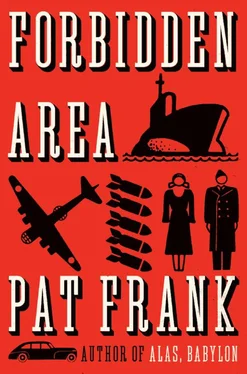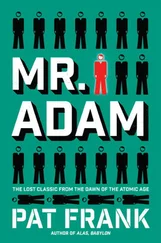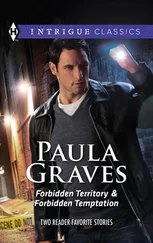Gumol’s daydreams had not been barren. He knew, at least, how to begin.
He picked up his largest brief case from the floor next to the file cabinet, walked out into the bank’s lobby, and chatted for a moment with Liggett, the partially crippled watchman. He went into the basement and unlocked the safe deposit cage. Five of the larger safe deposit boxes were in his own name. He opened one of these and started packing the brief case. He first put in all the thousand dollar bills, two hundred of them, and eight packages of hundreds. Then he crammed in fifties, twenties, and even tens, counting as he worked. When the case was full it contained $385,000. Whatever happened, that should be sufficient.
He returned to his office and thought what he must do next. The thought of returning home, to Ruth, was repugnant. She’d guess something was up. She never missed. He lifted the telephone, dialled his home number, and told the maid he wanted to speak to Mrs. Gumol. When she answered he said, “Ruth, dear, I’ve got to go to Havana right away.”
“Havana!” Her voice, as always, was like an iron file on tin.
“They’re floating a big bond issue down there. I think I can get in on it—get the Pennsylvania distribution.”
“You’ve never done anything like that before.”
“Lots of things haven’t been done before.”
“You’re not still at the bank, are you?”
“Yes, I’ve been talking long distance most of the afternoon.”
“I thought you had a golf date.” In her voice was triumphant suspicion.
“Well, after golf, I mean.”
She said, “Robert, I don’t think you’re telling me the truth. Anyway, it’s seven o’clock and we’re going out for dinner.”
So he was a liar! He was furious, but he strained the anger from his voice, and forced himself to speak impersonally, as when turning down a ne’er-do-well’s request for a loan. “I’m afraid you’ll have to go by yourself, Ruth. I’ve got to catch the first plane I can get from Philly.”
“You mean you’re not even coming home to pack?”
“No. I’m not coming home to pack. Only be gone a few days. It’s possible to buy clothes in Havana, you know.”
“But Robert!”
“I’ll wire my address when I get there. Goodbye, Ruth.” He hung up, and leaned back in his chair. He discovered that his hands trembled, and he was breathing heavily. He assured himself that it was excitement, not his heart. Old Doc Blandy had told him to take off weight and cut out golf entirely. Blandy was nuts. Golf was his only recreation, and exercise, and how could a man lose weight by cutting out exercise? What must he do next, now? The bank. That would be simple. A bank didn’t question your motives, call you a liar, or talk back. Not when you owned it, it didn’t. In recent years he had entrusted Gifford, his cashier, with almost all the routine, while he travelled about as much as he could. A man could live elegantly, while travelling, at no cost. He lived on an expense account, and it didn’t even cost the bank anything, really, because of the tax structure. Everything came off the top. Everything, even call girls, if you knew how to squeeze them in under the column headed Entertainment. Gumol penned a note:
“DEAR GIFF—
“Ran into a heart specialist today who advised me to take a rest. Decided to go to Havana for a week or two. When I’m down there I’ll investigate opportunities in Latin-American exchange, so the whole trip can come off the top.” That would sound authentic to Gifford, he thought.
“Told my wife the trip was strictly business because I didn’t want to alarm her. Please see to it that she continues to think so. I will send my address as soon as I get there. Will probably stay at the Nacional, as usual.”
He signed his name and thought of something else. “P.S.,” he wrote. “Let’s keep this in the family. Don’t tell anyone that I’m in Havana.” More than anything else, he was afraid the Russians might suspect he had skipped. If they knew where to find him, they could compel him to return. Or kill him.
Gumol re-read the note. The handwriting was shaky. Perhaps that was just as well. Gifford knew about his slight heart murmur and would think he was really ill. He wasn’t ill at all. He was just a little excited, perhaps a little frightened. If the Russians, or anyone, learned he was leaving the country with all this cash—he patted the brief case and forced himself to think of something else.
There was that girl in Atlantic City. Maybe she’d go for an all-expenses-paid tour of Havana. No, that would be stupid. If he took her to Cuba, he might be hooked with her—forever. Anyway, Havana was alive with women, young and easy. From now on, he was going to live.
Robert Gumol caught a night flight out of Philadelphia and changed in Washington for Havana. He congratulated himself on being the first to foresee what was coming, and to get out from under. Actually, he wasn’t. 5
Katharine Hume spent that afternoon and most of the evening at the Atomic Energy Commission, seeking the answer to “When?” Every day Air Force and Navy planes cruised the upper altitudes between Japan and Alaska, and over the northern rim of Canada and Greenland, trapping samples of air. At seismograph stations circling Russia men watched for a tremor that was not a natural grumbling of the earth. Even the smallest atomic explosion—if any could be called small—could be detected. Its location would be fixed by triangulation, its strength estimated and composition analyzed from radioactive particles carried beyond the bounds of the Soviet Union by a constant ally, the west wind.
In the past year Britain had tested two of its new H-bombs in the frigid and unpeopled waters southwest of Australia. The United States had ignited a twenty-megaton shot at Eniwetok. In Nevada several new anti-aircraft rockets, armed with a core of fissionable material no larger than a golf ball, had been tried out. One such rocket would sponge a whole formation of bombers from the sky. In Russia there had been three nuclear explosions. They were so minor that nobody had bothered to announce them. Russia had tested no more H-bombs. So the intelligence evaluation of the AEC, at that moment, was that the world was comparatively normal. She gathered nothing new. The AEC felt no cause for alarm.
Katharine Hume left the AEC before ten o’clock and walked home through the fog settling over the Potomac basin, head down, wishing she had worn a topcoat, thinking. The world wasn’t normal at all. Each nuclear shot raised the atmosphere’s background radiation a jot. She had access to the latest figures. To her they were frightening, yet she no longer mentioned her fears to her superiors, or checked her computations with her colleagues. Trouble was, she knew she could never produce an unchallengeable paper to offer them. You could prove the deleterious effect of excessive radiation on generations of fruit flies. You could make fairly accurate predictions of the effect on mice if you bred and studied them for years. But people were different. It would be a century or two before all was known of Hiroshima. With people, all you could do was make an informed guess, because often the mutations would not appear for generations.
It was not fashionable or safe to tread in this forbidden area. Once she had been publicly rebuffed by a commissioner, no less, as “a beautiful young woman engrossed in her genes.” Once she had overheard a remark made to Kevin Lane, whom she was dating at the time, by another junior administrator. “I hear,” the other man had said, “that Katy wears a lead chastity belt.” Kevin had laughed at the crudity, and she had never gone out with him again. She suspected that one of the reasons she had been assigned to the Intentions Group was her insistence in pursuing a subject disagreeable to men whose principle raison d’être was the designing and testing of bigger and better bombs. While the AEC admitted her ability, still it was embarrassing to have her around, dropping barbed questions about future generations, if any, into the solemn pools of scientific deliberation. So she had learned to keep silent.
Читать дальше












